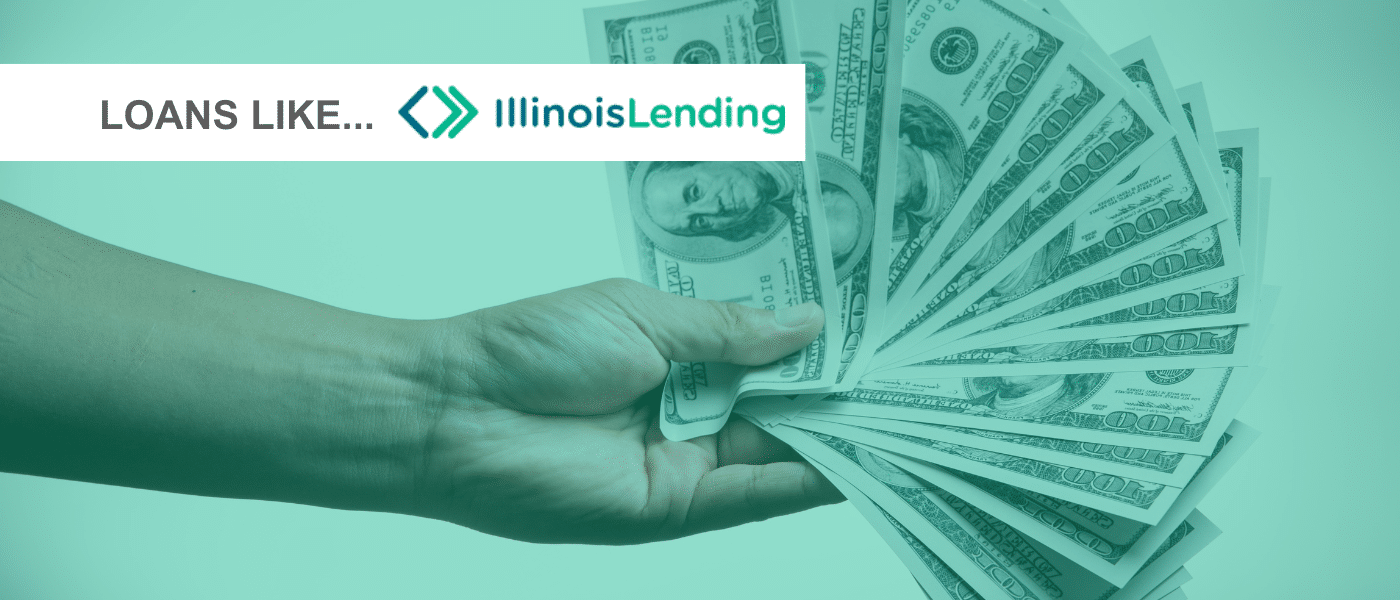Between conforming and non-conforming loans, the best home loan for you depends on a lot of factors. Before you apply for any type of mortgage, ensure you know your desired home purchase price, budget, loan term, and rate.
Buying a home is a great achievement and investment, but it is a costly asset to acquire. According to the Zillow Home Value Index, the cost of a typical home in the United States is $344,141.1 But with the right mortgage, you may be able to afford your dream home!
Keep reading to learn how to choose between a non-conforming vs conforming loan, so you choose the best mortgage loan!
What Is the Federal Housing Finance Agency?
It’s essential to know what the Federal Housing Finance Agency (FHFA) is before learning the differences between conforming loans and non-conforming loans.
The Housing and Economic Recovery Act of 2008 (HERA) established the FHFA in 2008. The purpose of the FHFA is to supervise, regulate, and oversee the following:
- The Federal National Mortgage Association (Fannie Mae)
- The Federal Home Loan Mortgage Corporation (Freddie Mac)
- The Federal Home Loan Bank System
The Federal Home Loan Bank System comprises the Office of Finance (OF) and the eleven Federal Home Loan Banks (FHL Banks). The FHFA helps strengthen the U.S. housing finance system because it provides regulatory and supervisory oversight of the secondary mortgage markets.
Since 2008, the FHFA has had Fannie Mae and Freddie Mac under conservatorship to ensure they preserve, conserve, and restore their assets to meet their statutory missions. This oversight is necessary because Fannie Mae and Freddie Mac are the largest mortgage buyers in the United States. As conservator, the FHFA has complete authority over all operations and is responsible for the overall management of Fannie Mae and Freddie Mac.
Understanding Mortgage Rates and APR
The rate on your home loan can greatly affect your monthly payments and the total cost of buying a house. But what is the difference between interest and the annual percentage rate (APR)?
The interest rate on a mortgage is the cost you pay each year to borrow the money, expressed as a percentage rate. It directly affects your monthly mortgage payments, but it doesn’t include any other costs associated with the loan.
On the other hand, the APR includes the interest rate plus any additional fees or costs associated with the mortgage, such as origination fees, closing costs, and any other lender charges. Therefore, the APR provides a more comprehensive picture of the total cost of the home loan. While the interest rate affects your monthly payments, the APR is a better indicator of the overall cost of the mortgage over its entire term.
Non-Conforming Loans vs. Conforming Loans
There are different types of secured loans to choose from, so how can you narrow down your search? First, it’s essential to know the differences between non-conforming loans and conforming loans.
| Feature | Non-Conforming Loans | Conforming Loans |
| Definition | Loans that do not meet the criteria set by Fannie Mae and Freddie Mac. | Loans that adhere to the limits and criteria set by Fannie Mae and Freddie Mac. |
| Types | Jumbo loans, VA loans, FHA loans, USDA loans. | Standard mortgage loans within FHFA-set limits. |
| Loan Limits | Exceed the limit for a conforming loan set by FHFA. | At or below specific loan limits set by FHFA (e.g., $726,200 for 2023). |
| Interest Rates | Typically higher due to the increased risk to lenders. | Generally lower as they are less risky for lenders. |
| Credit Score Requirements | Often stricter, especially for jumbo loans. Lower for government-backed options like FHA, VA, and USDA loans. | Usually requires a minimum credit score of 620. |
| Down Payment | Varies by loan type. Jumbo loans often require higher payments. Government-backed options might have low or no down payment requirements. | As low as 3%, depending on the borrower’s creditworthiness and other factors. |
| Ideal for | Buyers looking for high-value properties or those who do not meet conforming loan criteria. Also, those eligible for government-backed loans. | Buyers purchasing moderately priced homes who meet standard lending criteria. |
| Mortgage Insurance | Depends on the type of loan, as some require mortgage insurance. | Required if the down payment is less than 20%. |
| Loan Accessibility | Can be more challenging to qualify for, especially jumbo loans. Easier for government-backed loans if eligibility criteria are met. | Generally more accessible to a wide range of borrowers due to standard lending criteria. |
The Different Types of Non-Conforming Loans
The eligibility requirements for a non-conforming loan vary depending on the type of mortgage loan you apply for. There are different types of non-conforming loans, but the most common include jumbo loans and government-backed loans, such as FHA loans.
Jumbo Loans
A jumbo loan is a mortgage that exceeds the conforming loan limit in your area. Jumbo loans are ideal for prospective homebuyers that want to buy an expensive home or live in a costly city. If your dream home exceeds $726,200, then a jumbo mortgage is the best mortgage option for you.
A jumbo loan provides a considerable loan amount to homebuyers, which is why the qualification requirements are very strict. Borrowers must have a sizable income and high credit scores. Jumbo loans also typically require higher down payments, so the lender may ask you to put down 20% or more.
VA Loans
A VA loan is issued by private lenders and partially or guaranteed by the United States Department of Veterans Affairs. This sounds like a worthwhile option to service members, as there were 1.3 million active-duty military in 2022.2 However, these installment loans are the most challenging government-backed loans to get due to strict qualification requirements.
You must be one of the following to qualify:
- An active-duty service member
- A veteran
- An eligible spouse of a veteran
- A U.S. citizen who served in the armed forces of a government allied with the U.S. during World War II
A VA loan is beneficial because it is a mortgage option that typically requires no money down. It may be possible to finance the entire home purchase with a VA loan! You only need to put money down when the purchase price is higher than the home’s appraised value.
These loans do not have a minimum credit score requirement set by the Department of Veterans Affairs. However, keep in mind that although the agency does not have credit requirements, private lenders that offer VA loans can set specific requirements. To get the best VA loan offer, take time to compare lenders.
FHA Loans
An FHA loan is a mortgage insured by the Federal Housing Administration. FHA loans are beneficial to individuals with bad credit scores because a high credit rating is not required. If you have a score higher than 500 points, you may get approval for an FHA loan! However, the down payment requirements may be higher if you have poor credit.
Borrowers with a 500 credit score may have to put down 10% of the purchase price, while scores higher than 580 may only have to provide 3.5%. The high cost of a down payment can make it challenging for many people to afford a home, but these loans could provide reasonable loan terms.
Keep in mind that small down payments may require an upfront premium. The mortgage insurance requirement is 1.75% of the loan amount. If your down payment is less than 10%, you will also be subject to an annual premium between 0.45% to 1.05% of the FHA loan amount. However, the lender can remove the mortgage insurance requirement eleven years from the date of the first loan payment.
USDA Loans
If you are interested in owning rural property or living in a suburban area, you should consider a USDA loan. USDA loans are backed by the Rural Development Guaranteed Housing Loan Program. Eligibility is typically limited to individuals that earn low to moderate income. However, the income and credit score requirements vary depending on the program.
Typically, a down payment is not necessary to get a standard USDA loan from a private lender, which can save you money! However, you will have to meet specific mortgage insurance requirements.
A great benefit of USDA loans is that the upfront mortgage insurance premium (1%) and the annual premium (0.35%) are lower than FHA loans! However, while the mortgage insurance requirement can be removed with FHA loans, you must continue to pay mortgage insurance until you pay off the USDA loan.
FAQs About Conforming Loans and Non-Conforming Loans
While conforming loans often have lower interest rates due to their adherence to FHFA guidelines, non-conforming loans, especially jumbo loans, might carry higher rates due to the increased risk for mortgage lenders.
Yes, you can refinance a non-conforming loan into a conforming loan, especially if your property value or financial situation has changed, allowing you to meet the loan limits and criteria.
Limits for conforming loans are adjusted yearly by the FHFA based on changes in the housing market. It’s always a good idea to check the current limits if you’re considering a mortgage.
First-time homebuyers should consider their budget and the property’s location when deciding between using a conforming loan or non-conforming loan. Conforming loans can be more accessible due to lower requirements, but if you’re eyeing a high-cost area, a non-conforming loan such as a jumbo loan might be necessary.
A higher credit score generally favors both loan types. For conforming loans, a score of 620 or higher is often required, while non-conforming loans might demand even higher scores.
The government, through the FHFA, sets guidelines for conforming loans. Non-conforming loans, while not directly regulated, include types like FHA and VA loans, which are government-backed.
Yes, non-U.S. citizens can apply for both types of loans. However, the requirements might vary, and it’s advisable to consult with mortgage lenders for specific eligibility criteria.
If your borrowing needs exceed the limits for conforming loans, you’ll likely need to look into a non-conforming loan, such as a jumbo loan, to finance your property purchase.
Conforming loans typically require a down payment as low as 3%, but this can vary based on your credit score and other factors. It’s a good idea to discuss with your mortgage lender to understand what specific down payment percentage you’ll need for your conforming mortgage.
Government-backed loans, such as FHA, VA, and USDA loans, are actually a type of non-conforming loan. While they don’t adhere to the standard conforming loan limits and criteria, they are backed by the federal government, offering unique benefits and eligibility requirements.
What CreditNinja Wants You To Know About Conforming vs. Non-Conforming Loans
If you want to buy a house, it’s crucial to know about the different types of home loans available. A conforming loan, also known as a conventional loan, is a home loan that meets the guidelines set by Fannie Mae and Freddie Mac. Non-conforming loans do not adhere to strict guidelines, so they cannot be sold to these two enterprises. Ultimately, the best mortgage loan option depends on your budget, long-term goals, and credit history.
At CreditNinja, we aim to provide quick cash loans and informational articles that increase financial literacy and understanding. Check out our online blog to learn how you can finance a phone with bad credit, how to store money without a bank, and even what happens if you have a bad credit score.
References:






